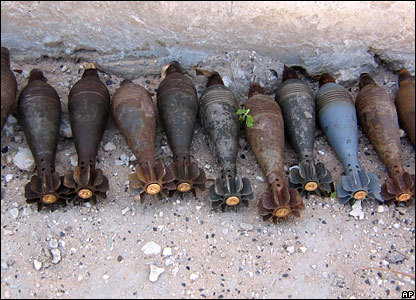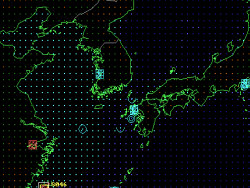American troops in Afghanistan through the eyes of a French OMLT infantryman
The US often hears echoes of worldwide hostility against the application of its foreign policy, but seldom are they reached by the voices of those who experience first hand how close we are to the USA. In spite of contextual political differences and conflicting interests that generate friction, we do share the same fundamental values – and when push comes to shove that is what really counts. Through the eyes of that French OMLT (Operational Mentoring Liaison Teams) infantryman you can see how strong the bond is on the ground. In contrast with the Americans, the French soldiers don’t seem to write much online – or maybe the proportion is the same but we just have less people deployed. Whatever the reason, this is a rare and moving testimony which is why I decided to translate it into English, so that American people can catch a glimpse of the way European soldiers see them. Not much high philosophy here, just the first hand impressions of a soldier in contact – but that only makes it more authentic.
Here is the original French article June 2011 update : the site of the original article is long dead – it disappeared not long after this translation was published and I was therefore unable to satisfy those who wanted proof of source. I just found out that Archive.org has captured a snapshot of the site as it was in September 2008 – so there, you can now read the original !
Here is my translation :
“We have shared our daily life with two US units for quite a while – they are the first and fourth companies of a prestigious infantry battalion whose name I will withhold for the sake of military secrecy. To the common man it is a unit just like any other. But we live with them and got to know them, and we henceforth know that we have the honor to live with one of the most renowned units of the US Army – one that the movies brought to the public as series showing “ordinary soldiers thrust into extraordinary events”. Who are they, those soldiers from abroad, how is their daily life, and what support do they bring to the men of our OMLT every day ? Few of them belong to the Easy Company, the one the TV series focuses on. This one nowadays is named Echo Company, and it has become the support company.
They have a terribly strong American accent – from our point of view the language they speak is not even English. How many times did I have to write down what I wanted to say rather than waste precious minutes trying various pronunciations of a seemingly common word? Whatever state they are from, no two accents are alike and they even admit that in some crisis situations they have difficulties understanding each other.
Heavily built, fed at the earliest age with Gatorade, proteins and creatine – they are all heads and shoulders taller than us and their muscles remind us of Rambo. Our frames are amusingly skinny to them – we are wimps, even the strongest of us – and because of that they often mistake us for Afghans.
Here we discover America as it is often depicted : their values are taken to their paroxysm, often amplified by promiscuity lack of privacy and the loneliness of this outpost in the middle of that Afghan valley. Honor, motherland – everything here reminds of that : the American flag floating in the wind above the outpost, just like the one on the post parcels. Even if recruits often originate from the hearth of American cities and gang territory, no one here has any goal other than to hold high and proud the star spangled banner. Each man knows he can count on the support of a whole people who provides them through the mail all that an American could miss in such a remote front-line location : books, chewing gums, razorblades, Gatorade, toothpaste etc. in such way that every man is aware of how much the American people backs him in his difficult mission. And that is a first shock to our preconceptions : the American soldier is no individualist. The team, the group, the combat team are the focus of all his attention.
And they are impressive warriors ! We have not come across bad ones, as strange at it may seem to you when you know how critical French people can be. Even if some of them are a bit on the heavy side, all of them provide us everyday with lessons in infantry know-how. Beyond the wearing of a combat kit that never seem to discomfort them (helmet strap, helmet, combat goggles, rifles etc.) the long hours of watch at the outpost never seem to annoy them in the slightest. On the one square meter wooden tower above the perimeter wall they stand the five consecutive hours in full battle rattle and night vision goggles on top, their sight unmoving in the directions of likely danger. No distractions, no pauses, they are like statues nights and days. At night, all movements are performed in the dark – only a handful of subdued red lights indicate the occasional presence of a soldier on the move. Same with the vehicles whose lights are covered – everything happens in pitch dark even filling the fuel tanks with the Japy pump.
And combat ? If you have seen Rambo you have seen it all – always coming to the rescue when one of our teams gets in trouble, and always in the shortest delay. That is one of their tricks : they switch from T-shirt and sandals to combat ready in three minutes. Arriving in contact with the ennemy, the way they fight is simple and disconcerting : they just charge ! They disembark and assault in stride, they bomb first and ask questions later – which cuts any pussyfooting short.
We seldom hear any harsh word, and from 5 AM onwards the camp chores are performed in beautiful order and always with excellent spirit. A passing American helicopter stops near a stranded vehicle just to check that everything is alright; an American combat team will rush to support ours before even knowing how dangerous the mission is – from what we have been given to witness, the American soldier is a beautiful and worthy heir to those who liberated France and Europe.
To those who bestow us with the honor of sharing their combat outposts and who everyday give proof of their military excellence, to those who pay the daily tribute of America’s army’s deployment on Afghan soil, to those we owned this article, ourselves hoping that we will always remain worthy of them and to always continue hearing them say that we are all the same band of brothers”.


